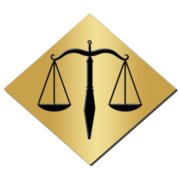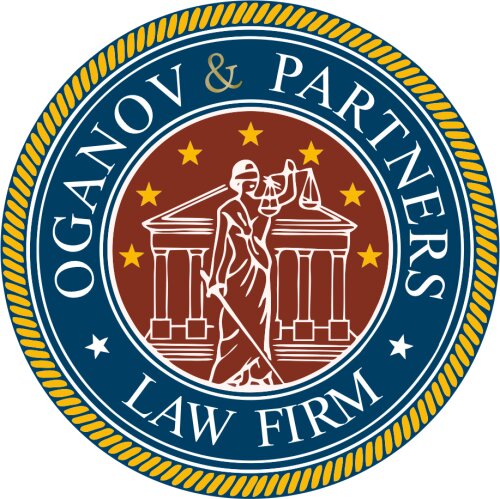Best Communications & Media Law Lawyers in Greece
Share your needs with us, get contacted by law firms.
Free. Takes 2 min.
Or refine your search by selecting a city:
List of the best lawyers in Greece
About Communications & Media Law in Greece
Communications & Media Law in Greece encompasses regulations and legal principles governing the dissemination of information through various media channels, including television, radio, print, and digital platforms. This area of law regulates both the content and the means of distribution, ensuring that communication practices adhere to national and international standards for privacy, fairness, and accuracy. In Greece, the regulatory framework is influenced by European Union directives, which are integrated into national legislation to oversee broadcasting, telecommunications, and digital media operations.
Why You May Need a Lawyer
Individuals and businesses may seek legal assistance in Communications & Media Law for several reasons. Common situations include:
- Defamation cases where an individual or entity has been subjected to false statements that harm their reputation.
- Compliance with national and EU regulations for broadcasting licenses and telecommunications operations.
- Issues related to intellectual property rights, such as copyright infringement in media content.
- Privacy violations, especially concerning data protection under the General Data Protection Regulation (GDPR).
- Negotiating and drafting contracts for media production, distribution, and marketing.
- Content disputes, including censorship and freedom of expression cases.
Local Laws Overview
Greece's legal landscape for Communications & Media Law is shaped by several key pieces of legislation and regulatory bodies:
- National Telecommunications and Post Commission (EETT): Governs telecommunications services, enforcing fair competition and ensuring consumer protection.
- Hellenic Audiovisual Communications Authority (EAEA): Regulates broadcasting and aims to uphold media pluralism, quality, and responsibility.
- Intellectual Property Law: Provides protection for creators by enforcing rights over their original works, such as films, music, and written content.
- Data Protection Legislation: Influenced by GDPR, this law ensures stringent protection of personal data collected and used by media companies.
- Press Law: Outlines the legal boundaries for journalism practices, highlighting rights and responsibilities to protect both public interests and individual reputations.
Frequently Asked Questions
What is the role of the EETT in Greece?
The National Telecommunications and Post Commission (EETT) is a regulatory authority responsible for overseeing the telecommunications and postal services sectors in Greece. It ensures compliance with national and EU regulations and fosters competition to protect consumer rights.
How does Greek law protect freedom of the press?
Freedom of the press in Greece is protected under the constitution and detailed in the Press Law, which safeguards journalists' rights to gather and disseminate information while ensuring they act responsibly and ethically.
What should I do if I believe my intellectual property rights have been violated?
If you suspect an infringement of your intellectual property rights, you should consult with a lawyer specializing in Communications & Media Law to evaluate your case, pursue legal action, or seek an amicable settlement.
Are there restrictions on foreign media ownership in Greece?
Yes, there are restrictions in place regarding foreign ownership of media entities in Greece to ensure national control and media pluralism, in line with EU regulations and national laws.
What is the procedure for obtaining a broadcasting license?
To obtain a broadcasting license in Greece, applicants must comply with regulations set by the Hellenic Audiovisual Communications Authority (EAEA), which involves submitting applications, fulfilling technical and content-related criteria, and undergoing a thorough evaluation process.
How can privacy violations be reported in Greece?
Privacy violations can be reported to the Hellenic Data Protection Authority (HDPA), which is responsible for enforcing data protection laws and investigating breaches to ensure compliance with GDPR standards.
What legal recourse is available for defamation in Greek media?
Victims of defamation in Greece can file a lawsuit seeking damages for harm caused to their reputation. Legal advice can help evaluate the merits of the case and navigate defamation laws effectively.
Are there specific laws regulating online content in Greece?
Online content in Greece is subject to both national laws and EU directives aimed at ensuring compliance with media regulations, intellectual property rights, and data protection standards.
What are the penalties for violating broadcasting regulations in Greece?
Penalties for violating broadcasting regulations in Greece can range from fines to revocation of broadcasting licenses, depending on the severity and nature of the infringement.
Can I challenge a regulatory decision made by EETT or EAEA?
Yes, regulatory decisions made by bodies like EETT or EAEA can be challenged through administrative procedures or in court, often requiring legal representation to ensure the challenge is conducted appropriately.
Additional Resources
Here are some resources and organizations that can be helpful for those seeking legal advice in Communications & Media Law in Greece:
- National Telecommunications and Post Commission (EETT): Provides resources and guidelines on telecommunications regulation.
- Hellenic Audiovisual Communications Authority (EAEA): Offers information on broadcasting standards and licensing procedures.
- Hellenic Data Protection Authority (HDPA): The official body for enforcing data protection laws in Greece.
- Ministry of Digital Governance: Facilitates access to laws, regulations, and developments in digital and communication services.
- Greek Bar Association: Can help locate specialized legal professionals in the field of Communications & Media Law.
Next Steps
If you need legal assistance in the field of Communications & Media Law in Greece, consider taking the following steps:
- Identify your specific legal issue and gather any necessary documentation related to your case.
- Research and contact a lawyer who specializes in Communications & Media Law in Greece. Utilize resources from the Greek Bar Association to find qualified professionals.
- Consider consulting with multiple lawyers to understand different perspectives and potential strategies for your case.
- Discuss fees and ensure clear communication regarding the anticipated costs of legal representation.
- Stay informed by accessing online resources and attending relevant seminars or webinars on Communications & Media Law in Greece.
Lawzana helps you find the best lawyers and law firms in Greece through a curated and pre-screened list of qualified legal professionals. Our platform offers rankings and detailed profiles of attorneys and law firms, allowing you to compare based on practice areas, including Communications & Media Law, experience, and client feedback.
Each profile includes a description of the firm's areas of practice, client reviews, team members and partners, year of establishment, spoken languages, office locations, contact information, social media presence, and any published articles or resources. Most firms on our platform speak English and are experienced in both local and international legal matters.
Get a quote from top-rated law firms in Greece — quickly, securely, and without unnecessary hassle.
Disclaimer:
The information provided on this page is for general informational purposes only and does not constitute legal advice. While we strive to ensure the accuracy and relevance of the content, legal information may change over time, and interpretations of the law can vary. You should always consult with a qualified legal professional for advice specific to your situation.
We disclaim all liability for actions taken or not taken based on the content of this page. If you believe any information is incorrect or outdated, please contact us, and we will review and update it where appropriate.
Browse communications & media law law firms by city in Greece
Refine your search by selecting a city.

















